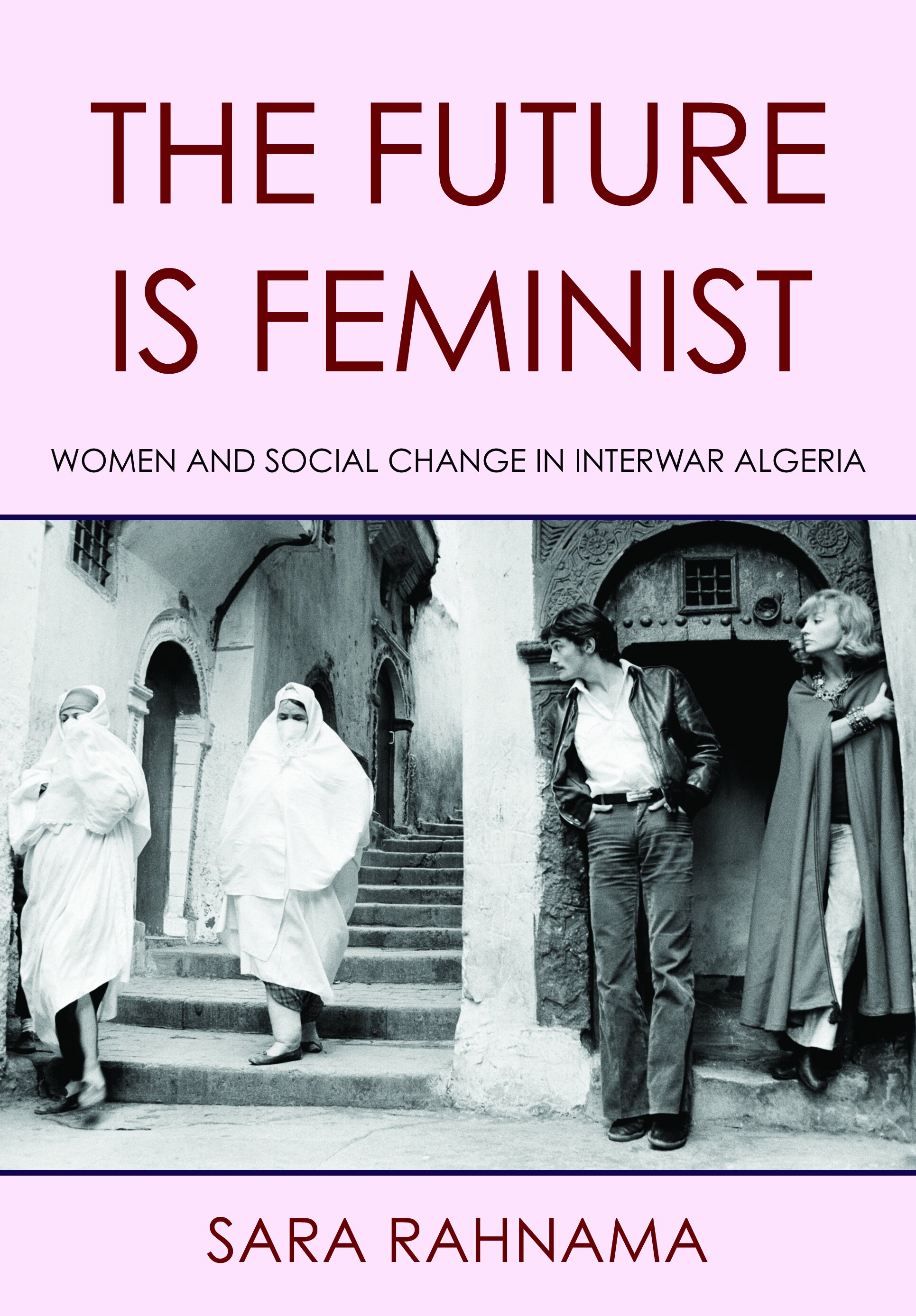Academic Books and Articles
The Future is Feminist: Women and Social Change in Interwar Algeria
Cornell UP, 2023
Winner of the Middle East Studies Association’s Nikki Keddie Book Prize
Winner of the French Colonial Historical Society’s Alf Andrew Heggoy Book Prize
The Future is Feminist analyzes how writing about women was a key forum through which Algerian commentators reclaimed dignity after a century under colonial rule and imagined prosperous, feminist Algerian futures. The large-scale entry of Algerian women into the labor force as domestic workers radically transformed Algerian urban space. To make sense of changing gender norms, Algerians looked at Islamic tradition with new eyes, inward at their own society, and outward to developments in the Middle East. Through its transregional, South-South frame, The Future is Feminist moves beyond the enduring scholarly obsession with anti-colonial nationalism to chart how the status of Muslim women animated the interwar Algerian public and connected it to rapidly transforming Middle East.
“Workshops of Empire: Rural Women’s Artisanry in Interwar Colonial Algeria”
French Historical Studies, Volume 47, Issue No. 3, August 2024
Workshops of Empire: Rural Women’s Artisanry in Interwar Colonial Algeria The French colonial state created an increasing number of artisanal training workshops for rural Algerian women during the interwar period. In earlier eras, some similar workshops had been managed and run by individual settler women or religious groups, but a new model of state control emerged in the 1920s and 1930s. Throughout the French colonial project in Algeria, the state had been reticent to work to improve Algerian women's status, claiming that to do so risked provoking the ire of Algerian men; this article examines the brief interwar moment in which the colonial state targeted Algerian women. It draws on an underexamined archival source base from both Algeria and France to explore how administrators sought to use workshops to transform rural Algerian women into waged workers and inculcate them with French culture. Women’s artisanal workshops were thus at the intersection of multiple state projects including racial capitalism.
Available from French Historical Studies or download directly here.
“Hats and Hijabs in Interwar Algeria”
Gender & History, Volume 32, Issue No. 2, July 2020
“Hats and Hijabs in Interwar Algeria” analyzes the interwar Algerian debates over women’s hijab and men’s hats alongside one another. Both sets of debates were facilitated by South-South intellectual connections — through references to Islamic knowledge, history, and concurrent developments in the Middle East. Within the types of hijabs and hats analyzed, particular forms came to symbolize which Algerian future (modern, traditional, Islamic, Algerian, European) the wearer was opting into.
Available from Gender & History or download directly here.
Public Scholarship
“Hamas 'mass rape': How Israel weaponises fear of Muslim men to fuel violence in Gaza”
Middle East Eye, January 2024
Tropes linking Muslim men to monstrous violence, including sexual crimes, speak to longstanding Islamophobic fears and explain why many believed the claims without evidence.
“Images of unveiled Iranian protesters inspire. But there are risks, too.”
Washington Post, October 2022
This “Made by History” column explores how images of Muslim women legitimized the French colonial project in Algeria, and the lessons of this history as we encounter images of Iranian women protestors today.
Podcasts
“The Future Is Feminist: Women and Social Change in Interwar Algeria”
New Books Network, January 2024
This episode of the New Books Network Podcast features a discussion between Rebecca Turkington (PhD Candidate, the University of Cambridge) and Sara Rahnama about her new book, The Future is Feminist.
“Hats and Hijabs in Algeria and Turkey”
The Ottoman History Podcast, episode 341, January 2018
This episode of the Ottoman History Podcast takes up the role of dress and comportment in shaping Algerian conversations about colonialism, feminism, and Islamic reform, as well as the importance of a "Turkish model" in interwar Algerian debates.
